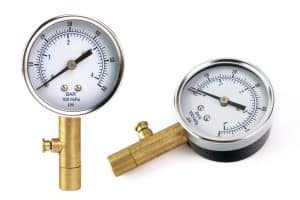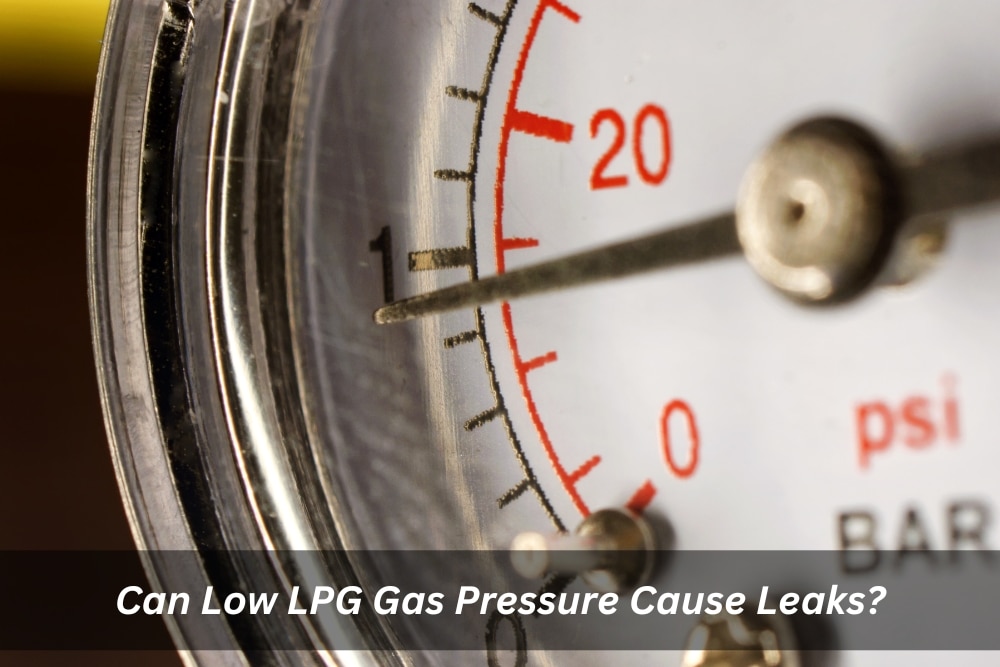Keeping your home’s LPG (Liquefied Petroleum Gas) system functioning safely and efficiently relies on proper pressure. But what happens when your LPG gas pressure dips? Can it cause leaks? This guide dives into the world of LPG pressure, exploring its role and potential connection to leaks.
Why is LPG gas pressure important?
Imagine your LPG system as a complex network of pipes delivering fuel to your appliances. LPG gas pressure acts like the water pressure in your taps. Strong, consistent pressure ensures a steady flow of gas, allowing your appliances to function properly.
When LPG gas pressure is optimal, your gas heater ignites smoothly, your hot water system delivers a consistent temperature, and your barbecue cooks your food evenly. Conversely, low LPG gas pressure can lead to:
- Reduced performance: Appliances might struggle to ignite, maintain a flame, or heat effectively.
- Incomplete combustion: This can release harmful carbon monoxide, a colourless, odourless gas that’s potentially fatal.
- Safety hazards: In some cases, low pressure might even extinguish a pilot light, leading to gas build-up and a potential explosion risk.
When might low LPG gas pressure occur?
Several factors can contribute to low LPG gas pressure:

- Empty or emptying LPG tank: As your LPG tank depletes, the pressure naturally decreases.
- Faulty regulator: The regulator is a crucial component that controls the pressure of gas flowing from the tank. A malfunctioning regulator can lead to inconsistent or low pressure. Understanding the function and lifespan of a gas pressure regulator can help you identify potential issues early on.
- Blocked gas lines: Debris or rust buildup in the gas lines can restrict gas flow and reduce pressure.
- Leaks in the system: While not the most common cause of low pressure initially, leaks can certainly worsen the situation.
Can low pressure actually cause leaks?
The good news is that low LPG gas pressure itself doesn’t directly create leaks. Leaks typically occur due to:
- Loose connections: Over time, connections in the LPG system might loosen slightly, allowing gas to escape.
- Damaged pipes: Corrosion, wear and tear, or external impact can damage pipes, creating leaks.
- Faulty appliance components: Internal issues within your gas appliances, like worn seals or malfunctioning valves, can also lead to leaks.
However, low pressure can indirectly contribute to leaks by putting stress on the system. Here’s how:
- Frequent pressure fluctuations: As the pressure drops and rises to compensate, the constant changes can stress the connections and pipes, increasing the risk of leaks developing over time.
- Appliance strain: Appliances struggling to function due to low pressure might put extra strain on components, potentially accelerating wear and tear that could lead to leaks.
What signs indicate a potential leak due to low pressure?
While low pressure itself won’t cause leaks to magically appear, it can sometimes signal underlying problems that might lead to leaks down the line. Here’s what to watch out for:
- Appliance performance issues: Difficulty igniting, flickering flames, or a drop in heating efficiency in your gas stove, hot water system, or heater can all be signs of low pressure. But these issues could also indicate leaks straining your system.
- The smell of gas: Remember, LPG is odourless and colourless by nature. While a distinct odorant is added for leak detection, it’s crucial to prioritise carbon monoxide safety. If you detect a strong gas odour in your home, regardless of pressure, evacuate immediately and call a licensed gas fitter. Carbon monoxide poisoning can be life-threatening, so act swiftly.
- Hissing sounds: Leaks can sometimes produce a hissing noise, especially near connections or damaged sections of pipe. If you hear this, it’s a red flag, not just for leaks, but potentially for low-pressure forcing gas through restricted areas.
- Dead plants near gas lines: This one might seem strange, but hear us out. Leaking gas can deprive nearby plants of oxygen, causing them to wilt or die unexpectedly. While this isn’t exclusive to low-pressure leaks, it’s another reason to be vigilant.
Remember: If you experience any of these signs, don’t ignore them. It’s always better to be safe than sorry. Call a licensed gas fitter to investigate immediately.
How should you respond to a suspected leak?
If you suspect an LPG gas leak in your home, take immediate action:
- Turn off the gas supply: Locate the main gas valve on your LPG tank and turn it off completely.
- Open windows and doors: This will help to ventilate the gas and prevent it from accumulating.
- Evacuate your home: Don’t attempt to locate the leak yourself. Leave your home immediately and take everyone with you.
- Call a licensed gas fitter: Once you’re safely out of the house, contact a qualified gas fitter to locate and repair the leak.
Important: Never light cigarettes, use matches, or turn on electrical appliances near a suspected leak, as this could ignite the gas and cause an explosion.
Who can help address low pressure or leaks?
If you’re experiencing low LPG gas pressure or suspect a leak, it’s crucial to seek professional help. A licensed gas fitter possesses the expertise and equipment to:
- Safely diagnose the cause of low pressure.
- Repair or replace faulty regulators.
- Inspect and identify leaks in the system.
- Perform necessary repairs to ensure your LPG system functions safely and efficiently.
Here at Apex Gas Heaters, we understand the importance of a reliable and safe LPG system. Our team of qualified gas fitters can diagnose and address any LPG gas issues you might be facing. We offer comprehensive services, including:
- LPG system inspections: We’ll thoroughly check your entire LPG system, identifying any potential problems with pressure, leaks, or faulty components.
- Regulator repairs or replacements: If your regulator is malfunctioning, our experts can repair it or recommend a suitable replacement.
- Leak detection and repair: Using specialised equipment, we can pinpoint leaks in your LPG system and perform safe and efficient repairs.
- Preventative maintenance: Regular maintenance helps to prevent future problems and ensures your LPG system operates at optimal efficiency.
Don’t wait until you experience a leak or appliance malfunction. Contact Apex Gas Heaters today to schedule an LPG system inspection and ensure your home’s LPG system functions safely and reliably.

